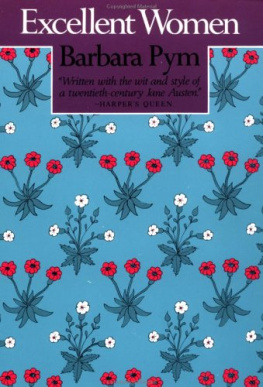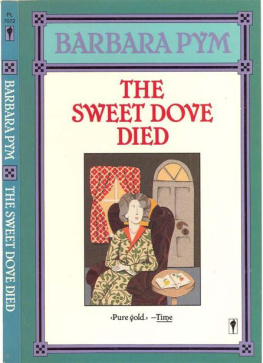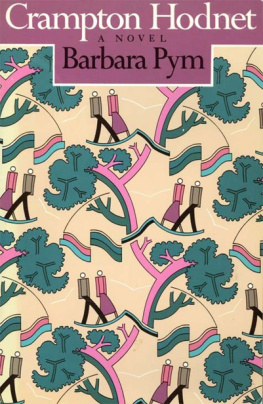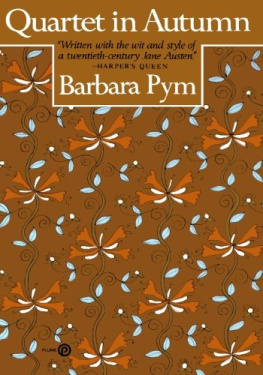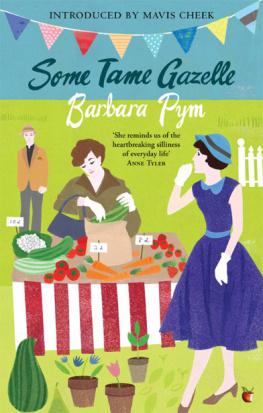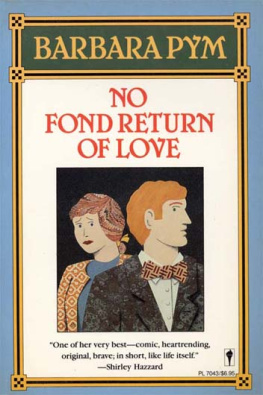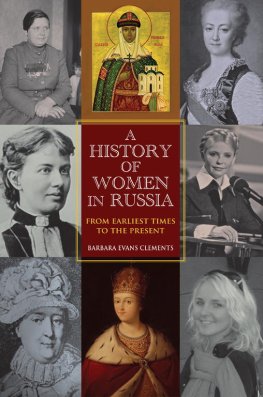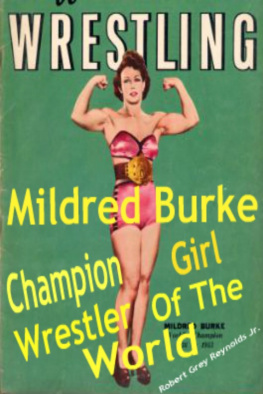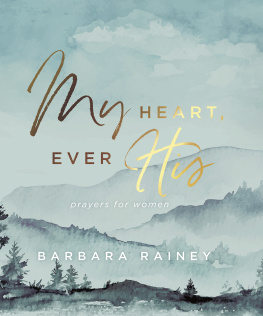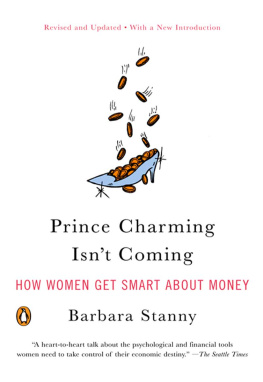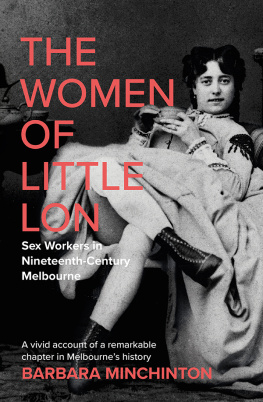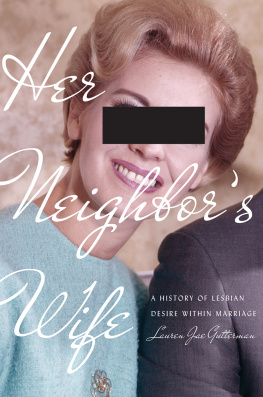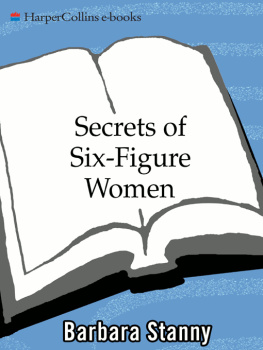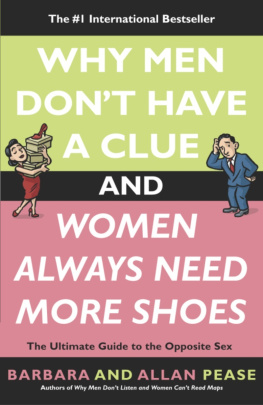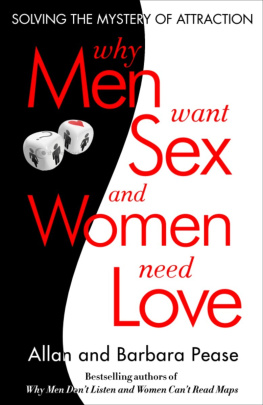CHAPTER ONE
A H , you ladies! Always on the spot when theres something happening! The voice belonged to Mr. Mallett, one of our churchwardens, and its roguish tone made me start guiltily, almost as if I had no right to be discovered outside my own front door.
New people moving in? The presence of a furniture van would seem to suggest it, he went on pompously. I expect you know about it.
Well, yes, one usually does, I said, feeling rather annoyed at his presumption. It is rather difficult not to know such things.
I suppose an unmarried woman just over thirty, who lives alone and has no apparent ties, must expect to find herself involved or interested in other peoples business, and if she is also a clergymans daughter then one might really say that there is no hope for her.
Well, well, tempus fugit , as the poet says, called out Mr. Mallett as he hurried on.
I had to agree that it did, but I dawdled long enough to see the furniture men set down a couple of chairs on the pavement, and as I walked up the stairs to my flat I heard the footsteps of a person in the empty rooms below me, pacing about on the bare boards, deciding where each piece should go.
Mrs. Napier, I thought, for I had noticed a letter addressed to somebody of that name, marked To Await Arrival. But now that she had materialised I felt, perversely, that I did not want to see her, so I hurried into my own rooms and began tidying out my kitchen.
I met her for the first time by the dustbins, later that afternoon. The dustbins were in the basement and everybody in the house shared them. There were offices on the ground floor and above them the two flats, not properly self-contained and without every convenience. I have to share a bathroom, I had so often murmured, almost with shame, as if I personally had been found unworthy of a bathroom of my own.
I bent low over the bin and scrabbled a few tea leaves and potato peelings out of the bottom of my bucket. I was embarrassed that we should meet like this. I had meant to ask Mrs. Napier to coffee one evening. It was to have been a gracious, civilised occasion, with my best coffee cups and biscuits on little silver dishes. And now here I was standing awkwardly in my oldest clothes, carrying a bucket and a waste-paper-basket.
Mrs. Napier spoke first.
You must be Miss Lathbury, she said abruptly. Ive seen your name by one of the door-bells.
CHAPTER TWO
J ULIAN M ALORY was about forty, a few years younger than his sister. Both were tall, thin and angular, but while this gave to Julian a suitable ascetic distinction, it only seemed to make Winifred, with her eager face and untidy grey hair, more awkward and gaunt. She was dressed, as usual, in an odd assortment of clothes, most of which had belonged to other people. It was well known that Winifred got most of her wardrobe from the garments sent to the parish jumble sales, for such money as she had was never spent on herself but on Goodone could almost say LostCauses, in which she was an unselfish and tireless worker. The time left over from these good works was given to making a home for her brother, whom she adored, though she was completely undomesticated and went about it with more enthusiasm than skill.
If only I could paint the front door! she said, as the three of us went into the vicarage after Evensong. It looks so dark and drab. A vicarage ought to be a welcoming sort of place with a bright entrance.
Julian was hanging up his biretta on a peg in the narrow hall. Next to it hung a rather new-looking panama hat. I had never seen him wearing it and it occurred to me that perhaps he had bought it to keep until its ribbon became rusty with age and the straw itself a greyish yellow. My father had worn just, such a hat and it always seemed to me to epitomise the wisdom of an old country clergyman, wisdom which Julian could not hope to attain for another twenty or thirty years.
A welcoming sort of place with a bright entrance, Julian repeated. Well, I hope people do get a welcome even if our front door is dark and I hope Mrs. Jubb has got some supper for us.
I sat down at the table without any very high hopes, for both Julian and Winifred, as is often the way with good, unworldly people, hardly noticed what they ate or drank, so that a meal with them was a doubtful pleasure. Mrs. Jubb, who might have been quite a good cook with any encouragement, must have lost heart long ago. Tonight she set before us a pale macaroni cheese and a dish of boiled potatoes, and I noticed a blancmange or shape, also of an indeterminate colour, in a glass dish on the sideboard.
Not enough salt, or perhaps no salt, I thought, as I ate the macaroni. And not really enough cheese.
Do tell me about this anonymous donation, I asked. It sounds splendid.
Yes, its really most encouraging. Somebody has sent me ten pounds. I wonder who it can be! When Julian smiled the bleakness of his face was softened and he became almost good-looking. There was usually something rather forbidding about his manner so that women did not tend to fuss over him as they might otherwise have done. I am not even sure whether anyone had ever knitted him a scarf or pullover. I suppose he was neither so handsome nor so conceited as to pretend a belief in celibacy as a protection, and I did not really know his views on the matter. It seemed a comfortable arrangement for the brother and sister to live together, and perhaps it is more suitable that a High Church clergyman should remain unmarried, that there should be a biretta in the hall rather than a perambulator.
I always think an anonymous donation is so exciting, said Winifred with adolescent eagerness. Im longing to find out who it is. Mildred, it isnt you, is it? Or anyone you know?
I denied all knowledge of it.
Julian smiled tolerantly at his sisters enthusiasm. Ah, well, I expect we shall know soon enough who has sent it. Probably one of our good ladies in Colchester or Grantchester Square. He named the two most respectable squares in our district, where a few houses of the old type, occupied by one family or even one person and not yet cut up into flats, were to be found. My flat was in neither of these squares, but in a street on the fringe and at what I liked to think was the best end.
It doesnt seem like them, somehow, I said. They dont usually do good by stealth.
No, Julian agreed, their left hand usually knows perfectly well what their right hand is doing.
Of course, said Winifred, a lot of new people have moved here since the war ended. Ive noticed one or two strangers at church lately. It may be one of them.
Yes, it probably is, I agreed. The new people moved into my house today and I met Mrs. Napier for the first time this afternoon. By the dustbins, too.
Julian laughed. I hope that isnt an omen, meeting by the dustbins.
She seemed very pleasant, I said rather insincerely. A bit younger than I am, I should think. Her husband is in the Navy and is coming home soon. He has been in Italy.
Italy, how lovely! said Winifred. We must ask them in. Dont you remember, dear, she turned to her brother, Fanny Ogilvy used to teach English in Naples? I wonder if he met her.
I should think it very unlikely, said Julian. Naval officers dont usually meet impoverished English gentlewomen abroad.
Oh, but his wife told me that he spent his time being charming to dull Wren officers, I said, so he sounds rather a nice person. She is an anthropologist, Mrs. Napier. Im not quite sure what that is.
Really? It sounds a little incongruousa naval officer and an anthropologist, said Julian.
It sounds very exciting, said Winifred. Is it something to do with apes?

